10 Best Organic Flour Brands for Home Baking in 2025: A Baker’s Guide
Did you know that the organic flour market is projected to reach $1.5 billion by 2025? As more home bakers prioritize quality ingredients, organic flour has become a pantry staple. I’ve spent countless hours testing different brands, and let me tell you – not all organic flours are created equal! Whether you’re baking sourdough bread or preparing delicate pastries, choosing the best organic flour brands can make all the difference in your results.
Organic flour matters because it is produced without synthetic pesticides or artificial additives, ensuring a healthier and more natural product. It preserves the integrity of the grain, which is crucial for optimum fermentation and gluten development. Plus, organic farming practices are better for the environment, making your baking an ethical and sustainable choice.

What Makes Organic Flour Different?
I used to think flour was just flour. White powder, bagged up, ready to use. But once I switched to organic flour, everything changed—my bread tasted better, my cookies had more depth, and even my pancakes felt fluffier. But what really makes organic flour different? Let me break it down because, trust me, it’s not just a fancy label.
1. No Synthetic Chemicals or Additives
The biggest difference? Organic flour is grown without synthetic pesticides, herbicides, or chemical fertilizers. I’ll admit, when I first heard this, I thought, Okay, but how much can that really affect my bread?
A lot, actually. Conventional wheat is often sprayed with glyphosate (yep, the stuff in weed killer) and other chemicals that can leave residues behind. Organic wheat, on the other hand, relies on natural farming practices, like crop rotation and composting, to nourish the soil. The result? Cleaner, chemical-free flour with nothing artificial lingering in your loaf.
2. Less Processing, More Nutrients
One of the first things I noticed after switching to organic flour was the flavor. It was nuttier, richer—just better. That’s because organic flour often undergoes less processing compared to conventional varieties.
Whole wheat organic flours, especially, retain the wheat’s bran and germ. These parts are packed with fiber, vitamins like B6, and minerals like magnesium. Conventional white flours? They’re often stripped of these nutrients to extend shelf life, leaving you with a flour that’s… well, kind of empty.
3. Better for Fermentation and Sourdough
Here’s something I didn’t expect: my sourdough starter loved organic flour. Seriously, it got so bubbly and active compared to when I was feeding it conventional flour.
Why? Organic flour retains more natural enzymes and wild yeasts since it’s less processed. Those extra enzymes help break down starches and feed your starter, leading to stronger fermentation and better rise in bread. If you’ve ever struggled with a sluggish starter, organic flour might be the boost it needs.
4. Environmentally Friendly and Sustainably Grown
I’m not going to lie—I didn’t think much about sustainability when I started baking. But the more I learned, the more I realized how connected flour is to the health of the planet.
Organic wheat farming skips the synthetic chemicals, which means healthier soil and cleaner water systems. Plus, many organic farms focus on regenerative agriculture, which helps rebuild soil health over time. It’s flour that’s not just better for you—but better for the earth, too.

Key Factors to Consider When Choosing an Organic Flour for Sourdough
Protein Content and Gluten Development
For sourdough baking, protein content is essential because it directly influences gluten development. Gluten provides structure to your dough, allowing it to rise properly and maintain its shape during baking. Organic flours with a higher protein content, such as bread flour, are ideal for sourdough bread, as they yield dough that is elastic and strong enough to hold the gases produced during fermentation.
Stone-Ground vs. Roller-Milled Flour
The milling method also affects flour performance. Stone-ground flour retains more nutrients and has a coarser texture, which can enhance the flavor and nutritional value of your bread. Roller-milled flour, on the other hand, is finer and more consistent in texture, making it easier to work with. Both options are excellent for sourdough baking, depending on personal preferences and your desired loaf characteristics.
Whole Wheat, Rye, and White Flour
Organic whole wheat flour is rich in fiber and nutrients, resulting in hearty, flavorful bread. Organic rye flour is perfect for creating a tangy sourdough with a darker, denser crumb. Meanwhile, organic white flour offers a versatile base that produces lighter, airier loaves. Understanding the role of each flour type can help you select the best one for your recipe or blend them to create a custom mix.
If you want to learn more about baking with organic flour and how to adapt recipes for organic flour, visit this post – Absolute Guide to Baking with Organic Flour: Basic Techniques (2025).
Top Premium Organic Flour Brands
Not all organic flours are created equal—some are ideal for artisan sourdough, while others shine in delicate pastries. After plenty of experimenting (and a few baking flops), I’ve found a few premium organic brands that truly deliver on flavor, texture, and quality.
- King Arthur: Established in 1790, King Arthur offers a wide range of organic flours, including all-purpose and bread flours, known for their consistent quality.
- Bob’s Red Mill: Renowned for its extensive selection of organic and whole-grain flours, Bob’s Red Mill provides options like organic whole wheat and gluten-free flours.
- Arrowhead Mills: Specializing in organic, non-GMO flours, Arrowhead Mills offers products such as organic unbleached all-purpose and whole wheat flours.
- Great River Organic Milling: Known for stone-ground organic flours, Great River offers a variety of products, including organic bread and whole wheat flours.
- Central Milling: Provides high-quality organic flours, including artisan bread flours, with a focus on sustainability and traditional milling methods.
- Hodgson Mill: Offers a range of organic flours, such as whole wheat and rye, emphasizing whole grains and natural ingredients.
- One Degree Organic Foods: Provides sprouted organic flours, ensuring traceability and transparency in their sourcing.
- To Your Health Sprouted Flour Co.: Specializes in organic sprouted flours, offering varieties like sprouted wheat and spelt flours.
- Jovial Foods: Known for its organic einkorn flour, Jovial Foods focuses on ancient grains and traditional farming methods.
- Anita’s Organic Mill: Offers a variety of organic flours, including whole grain and specialty flours, with a commitment to quality and sustainability.
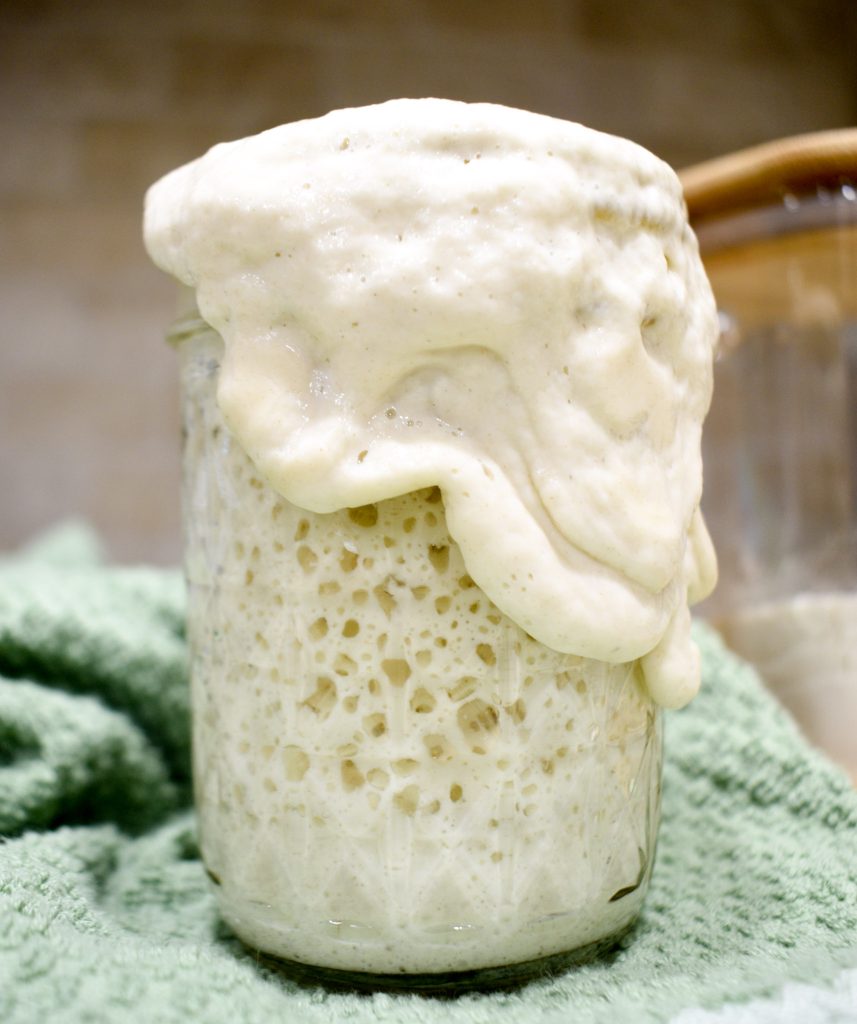
Best Organic Flour Brands for Sourdough Baking
Disclaimer: As an Amazon Associate, I earn from qualifying purchases.
1. King Arthur Organic Unbleached Bread Flour
King Arthur’s Organic Unbleached Bread Flour is a favorite among sourdough beginners and seasoned bakers. With a high protein content of 12.7%, it provides excellent gluten development for a strong, elastic dough. This flour is finely milled, making it easy to work with while producing consistently great results.
pros
cons
2. Bob’s Red Mill Organic Whole Wheat Flour
Bob’s Red Mill Organic Whole Wheat Flour delivers a hearty, nutty flavor that elevates your sourdough bread. Its high fermentation properties create a robust starter and a deeply flavorful crumb. Rich in fiber and nutrients, this flour is a go-to for bakers seeking healthier bread without compromising on taste.
pros
cons
3. Central Milling Organic Artisan Bakers Craft Flour
Central Milling is trusted by artisan bakers for its exceptional quality. Their Organic Artisan Bakers Craft Flour is finely milled and versatile, making it an excellent choice for sourdough bread, pizza crusts, and more. This flour ensures consistent fermentation and a soft, airy crumb that’s perfect for artisan-style loaves.
pros
cons
4. Arrowhead Mills Organic Rye Flour
Arrowhead Mills Organic Rye Flour is ideal for sourdough enthusiasts looking to bake tangy rye loaves. With its coarser texture and robust flavor, this flour imparts a rustic character to your bread. It’s also rich in nutrients and complements whole wheat and white flours in blended recipes.
pros
cons
5. Jovial Organic Einkorn Flour
For those interested in ancient grains, Jovial Organic Einkorn Flour is a standout option. This flour has a distinctive nutty flavor and golden hue, adding depth and color to your sourdough. Though it has a lower gluten content than traditional flours, it works beautifully in sourdough starters and adds uniqueness to your bread.
pros
cons
6. Great River Organic Milling Whole Wheat Bread Flour
Great River Organic Milling specializes in stone-ground flours, and their Whole Wheat Bread Flour is no exception. It offers a rich, earthy flavor and excellent elasticity, making it well-suited for sourdough baking. The coarser grind enhances the bread’s texture and nutritional benefits.
pros
cons
7. One Degree Organic Sprouted Wheat Flour
One Degree Organic Sprouted Wheat Flour stands out for its sprouted grain base, which promotes easier digestion and a more nuanced flavor profile. This flour is perfect for health-conscious bakers who want to enhance both the taste and nutritional value of their sourdough bread.
pros
cons
FAQs About Organic Flour and Sourdough Baking
Can I mix different organic flour brands in one recipe?
Yes, mixing brands is completely fine and can even enhance your results. Different organic flours may bring unique protein levels, flavors, and textures to your dough, allowing you to customize your sourdough loaves.
Why does some organic flour behave differently in fermentation?
Fermentation behavior can vary due to factors like protein content, milling methods, and even the grain variety used. One brand’s organic flour may absorb more water or develop gluten differently than another, so it’s essential to experiment and adjust recipes accordingly.
Is organic rye flour necessary for a rye sourdough loaf?
While not strictly necessary, organic rye flour enhances the flavor and authenticity of rye sourdough. It also contains pentosans, which can lead to a denser crumb, perfect for rustic rye bread.
Close Up
Using organic flour in sourdough baking elevates the flavor, texture, and nutritional quality of your bread while supporting sustainable farming practices. From the high-protein King Arthur Organic Bread Flour to the unique Jovial Einkorn Flour, there’s an option for every baker and recipe. Don’t be afraid to experiment with different brands and blends to discover your ideal sourdough combination.
Share your sourdough journey in the comments—whether you’ve found your favorite brand or crafted a new recipe, we’d love to hear about your experiences!

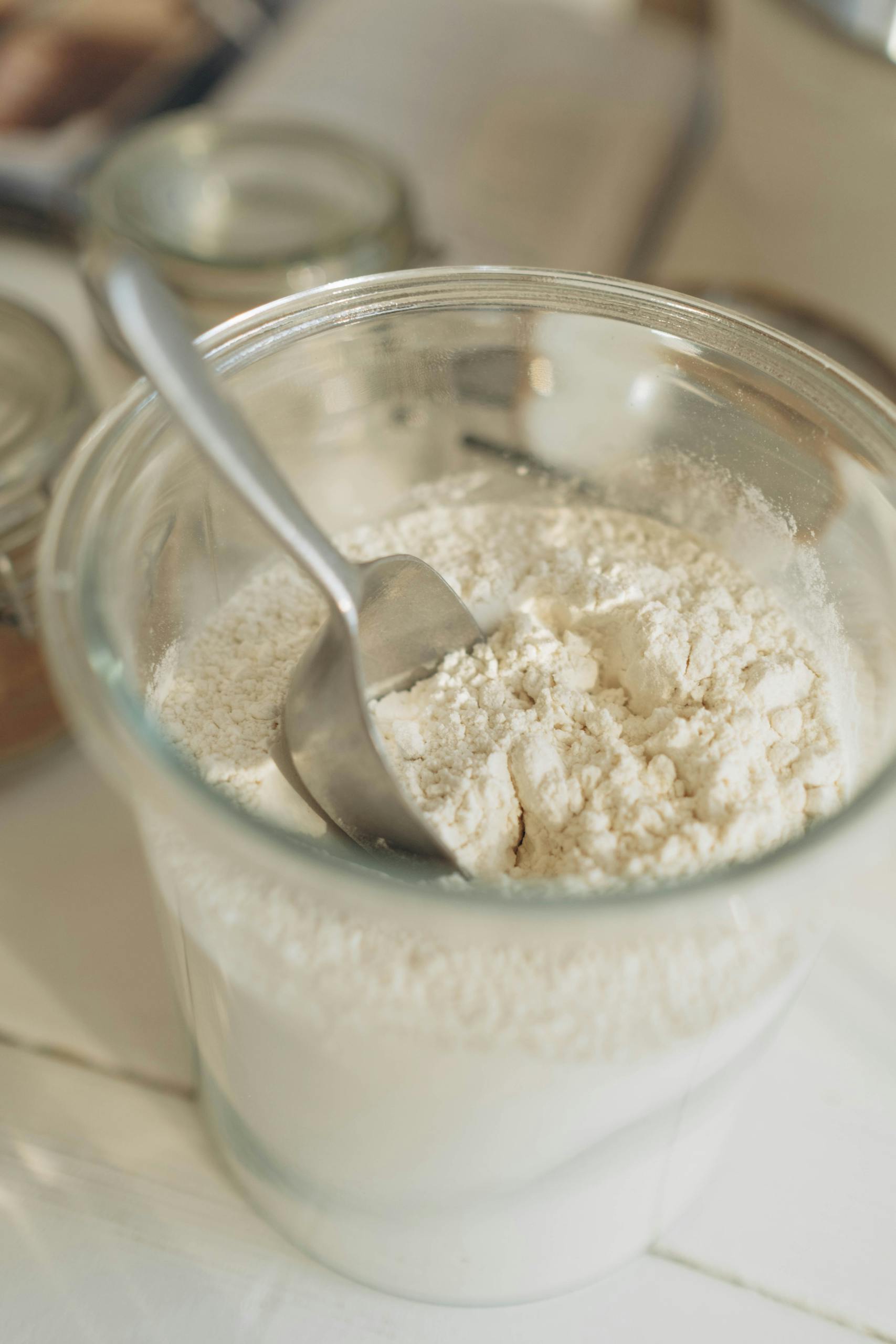


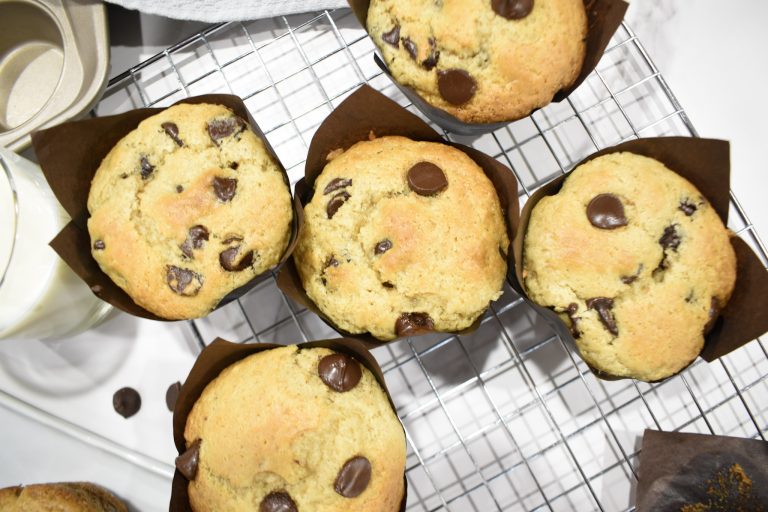
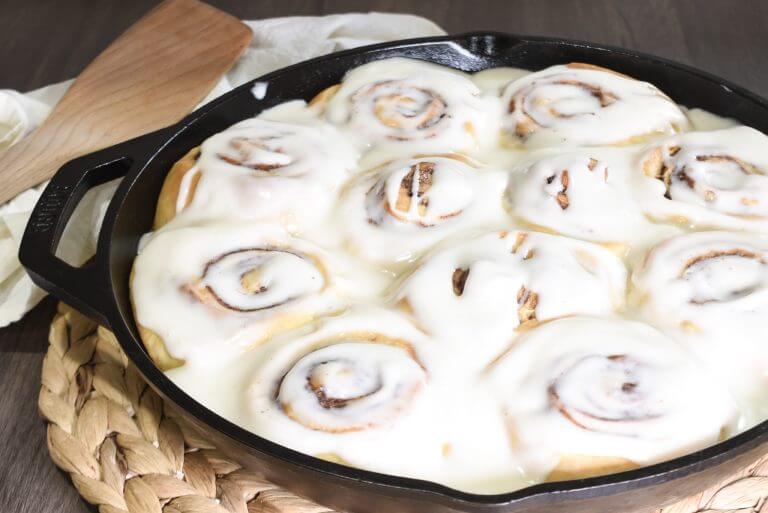
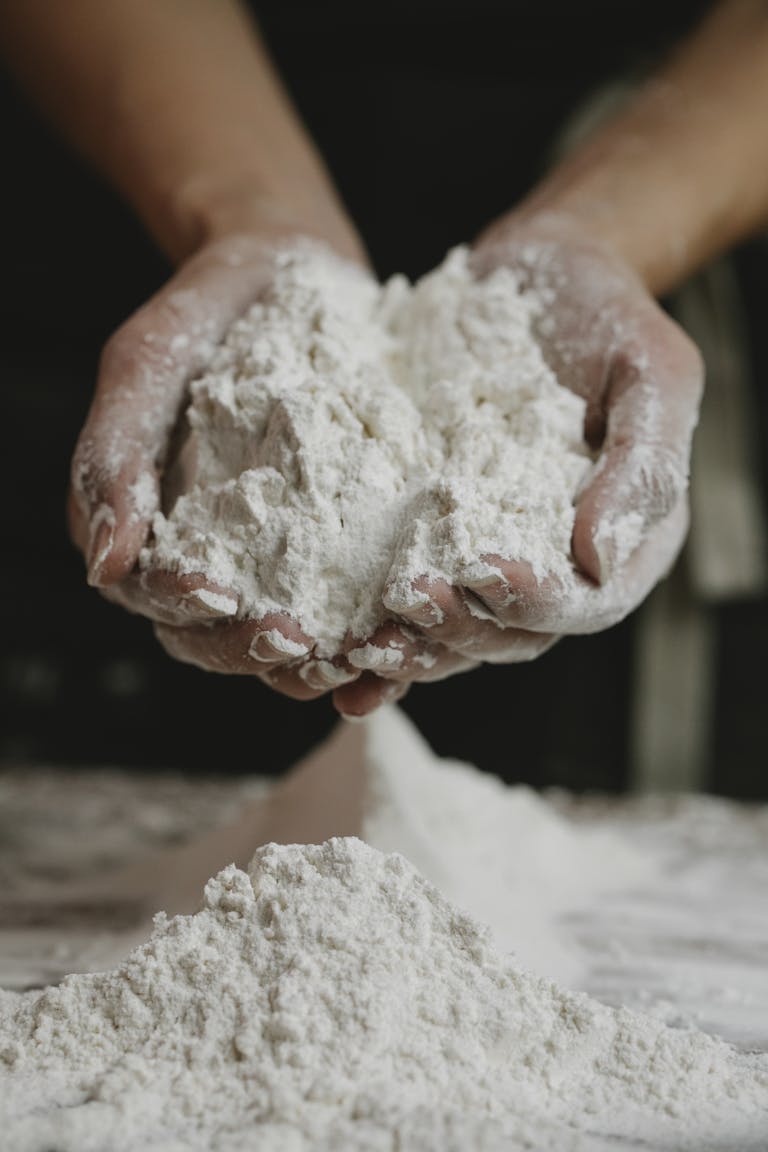

It would be helpful if the Pros and Cons include the material the flour is packaged in. Anyone truly interested in personal health or the health of the planet is not going to want their flour packaged in plastic and unfortunately some of your top picks are only available in plastic.
What about War Eagle Mill Food Group? All of their grains are USDA Certified Organic, Non-GMO, and sourced from American farms. They may be a small company, but they’re deeply committed. I know the owners personally, and they hand-select every grain themselves. They have real relationships with their farmers and are passionate about supporting local communities.
Hi Clint, Thanks for recommending that flour brand! I was focusing more on the most commonly found organic flours out there. I will be writing another post about American Mills because I also use a small company for my organic flour – Janie’s Mill. I LOVE their flour and my customers from the farmers market really like my baked goods with it. I am all about supporting small businesses!
Blessings,
Jess
What about great value organic flour
Hi Bruce,
I have never tried great value organic flour. I haven’t seen it around where I live.